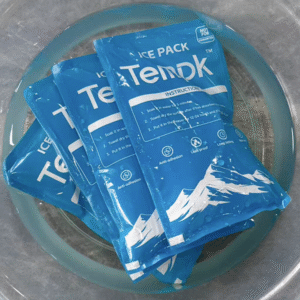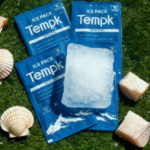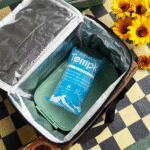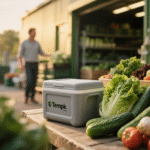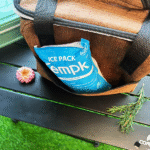How Frozen Goods Dry Ice Pack Sheets Keep Your Supply Chain Cold and Profitable
In today’s fast-paced global supply chains, the need for precise temperature control is paramount. Frozen goods dry ice pack sheets have emerged as a critical solution for ensuring that perishable items — from pharmaceuticals to frozen foods — maintain their integrity during transit. These innovative sheets provide reliable cooling without the need for bulky, expensive refrigeration systems, offering businesses in industries like food distribution, pharmaceutical logistics, and biotech an effective, cost-efficient way to meet the stringent temperature requirements of modern cold chain logistics.
-
How dry ice pack sheets improve cold chain efficiency and compliance
-
The differences between dry ice sheets and traditional cooling methods
-
Key use cases across food, pharma, and biotech logistics
-
Emerging 2025 cold chain trends and sustainability innovations
-
Practical steps for selecting and deploying dry ice pack sheets effectively
Why Are Frozen Goods Dry Ice Pack Sheets Essential for Modern Cold Logistics?
Frozen goods dry ice pack sheets offer several advantages over traditional cooling methods. They are flat, flexible sheets filled with compressed carbon dioxide (CO₂) that sublimate directly into gas, providing continuous cold without the mess of melting ice. With temperatures reaching as low as -78.5°C, dry ice pack sheets maintain the perfect freezing environment for sensitive goods, such as vaccines, biologics, and frozen foods.
In addition to their superior cooling power, dry ice sheets are also leak-proof, moisture-free, and lightweight. These attributes make them a preferred choice for both short- and long-haul shipments, ensuring that goods remain at their optimal temperatures, no matter how long the journey. Furthermore, their compliance with global cold chain standards, including GDP (Good Distribution Practice) for pharmaceuticals, reduces regulatory risks and strengthens business reputation.
How Do Dry Ice Pack Sheets Work?
Dry ice pack sheets combine CO₂ sublimation cooling with advanced insulating materials that control gas release, ensuring optimal temperature maintenance over extended periods. Each sheet is made from multi-layer polymer films that encapsulate compact dry ice cells, preventing direct contact with the product while distributing cold air evenly.
| Cooling Component | Function | Typical Duration | For Your Business |
|---|---|---|---|
| CO₂ Sublimation | Absorbs heat efficiently | 48–96 hours | Long-lasting temperature control |
| Polymer Film Layer | Prevents moisture exposure | Continuous | Protects packaging and product labels |
| Thermal Cell Design | Even cold distribution | 24–72 hours | Ensures uniform freezing and minimal waste |
Real-World Benefits for B2B Cold Chain Operators
For B2B logistics operators, the advantages of dry ice pack sheets are clear:
-
Reduced product loss: Keeps products below -18°C for longer transit periods, reducing spoilage rates.
-
Lower operational costs: Eliminates the need for mechanical refrigeration in short hauls.
-
Simplified handling: Easy to handle, stack, and store due to their light weight and leak-proof design.
-
Compliance-ready: Meets stringent requirements for pharmaceutical and food logistics, including FDA and WHO guidelines.
Case Example:
A pharmaceutical distributor in Singapore reduced their CO₂ usage by 20% by switching from traditional dry ice pellets to structured dry ice sheets, which eliminated the need for manual refills and reduced their overall carbon footprint.
How Do Dry Ice Pack Sheets Compare to Traditional Cooling Systems?
When it comes to reliability and temperature control, dry ice pack sheets outperform traditional cooling methods like gel packs and ice bricks. While gel packs may be suitable for fresh goods, they only maintain temperatures around 0°C, making them unsuitable for frozen items that require sub-zero conditions. Dry ice sheets, on the other hand, maintain temperatures ranging from -78.5°C to -18°C, ideal for keeping frozen foods and biologics intact.
| Cooling Method | Temperature Range | Moisture Risk | Duration | Typical Application |
|---|---|---|---|---|
| Dry Ice Pack Sheet | -78.5°C to -18°C | None | 48–96 hrs | Frozen food, vaccines |
| Gel Pack | 0°C to +5°C | Medium | 12–36 hrs | Fresh produce, dairy |
| Water Ice Pack | 0°C | High | <12 hrs | Short-term local delivery |
| Refrigerated Container | Adjustable | Low | Continuous | Bulk ocean freight |
Why B2B Logistics Managers Prefer Dry Ice Sheets
1. Temperature Integrity:
Dry ice sheets maintain ultra-low temperatures, making them ideal for pharmaceuticals, biotech, and frozen foods that require precise cold chain management.
2. Space Efficiency:
Their thin, flexible design allows them to fit neatly within various container types, providing a more efficient way to transport temperature-sensitive goods compared to bulky refrigerated containers.
3. Lower Carbon Footprint:
Unlike refrigerated units that consume electricity, dry ice sheets require no external power, making them an environmentally-friendly option for cold chain logistics.
4. Multi-Industry Adaptability:
Dry ice sheets are versatile enough to be used across various industries — from food distribution to pharmaceutical and biotech logistics.
Industry Insight:
Over 62% of global pharmaceutical distributors have shifted to using dry ice pack sheets as part of a hybrid packaging strategy, as they offer better temperature control and cost-efficiency compared to traditional methods.
Applications of Frozen Goods Dry Ice Pack Sheets Across Industries
Food Distribution: Ensuring Frozen Integrity from Plant to Plate
Food distributors rely on dry ice pack sheets to prevent thawing, microbial growth, and texture degradation during transportation. Whether shipping frozen meats or seafood, these sheets ensure that products remain in optimal condition throughout the supply chain.
Pharmaceutical and Biotech Logistics: Maintaining Strict Temperature Compliance
For pharmaceutical companies, temperature excursions can lead to significant financial losses and health risks. Dry ice sheets provide a reliable solution for maintaining ultra-low temperatures during the transport of vaccines, enzymes, and biologics, reducing dependency on powered refrigeration.
E-Commerce and Frozen Meal Delivery
The rise of frozen meal kits and e-commerce has led to increased demand for efficient, portable cooling solutions. Dry ice sheets are ideal for small shipments where precise temperature control is essential, providing businesses with a competitive edge.
Choosing the Right Dry Ice Pack Sheet for Your Business
When selecting dry ice sheets, it’s essential to consider the product’s sensitivity, the transit duration, and the packaging volume. Thicker sheets or those with higher CO₂ density are necessary for longer transit times or higher-value products.
Pro Tip:
Always test different configurations of dry ice sheets under simulated conditions to determine the ideal setup for your specific needs. This ensures that your shipment maintains the desired temperature throughout its journey.
2025 Trends in Frozen Goods Cold Chain Technology
Sustainability and CO₂ Efficiency:
In 2025, the adoption of dry ice recycling systems has become common, allowing businesses to reduce their carbon footprint by reusing sublimated CO₂ gas.
Smart Temperature Monitoring:
IoT-based sensors are now integrated into dry ice sheets, providing real-time monitoring and temperature tracking, enhancing cold chain visibility.
Hybrid Packaging Solutions:
Combining phase change materials (PCMs) with dry ice sheets ensures stable temperature transitions during multi-zone shipping and customs delays.
Frequently Asked Questions
Q1: How long can frozen goods dry ice pack sheets last during transport?
Typically, they last 48–96 hours, depending on the sheet thickness, insulation, and ambient temperature.
Q2: Are dry ice sheets safe for air freight?
Yes, they comply with IATA regulations for dry ice shipments when properly packaged and labeled.
Q3: Can dry ice pack sheets be reused?
Many modern sheets are designed for multiple uses, especially those with reinforced polymer coatings.
Conclusion and Strategic Takeaways
Frozen goods dry ice pack sheets are a game-changer for B2B logistics operators, offering long-lasting, reliable cold storage without the need for powered refrigeration. By switching to dry ice sheets, businesses can reduce operational costs, minimize spoilage, and maintain strict compliance with industry regulations.
Key Takeaways:
-
Dry ice sheets offer superior temperature control, reducing spoilage and waste.
-
They are more space-efficient and environmentally-friendly compared to traditional methods.
-
Emerging trends in 2025, including sustainability innovations and smart monitoring, are making them even more efficient.
Next Steps:
-
Evaluate your cold chain needs and test different dry ice sheet densities.
-
Partner with trusted suppliers for customized solutions.
-
Keep an eye on emerging trends and integrate new technologies into your cold logistics strategy.
About Tempk:
Tempk provides state-of-the-art cold chain packaging solutions tailored to the needs of global industries, from pharmaceuticals to food distribution. Our dry ice pack sheets are designed for optimal performance, sustainability, and compliance with 2025 logistics standards.
Contact Us for personalized cold chain packaging solutions.






